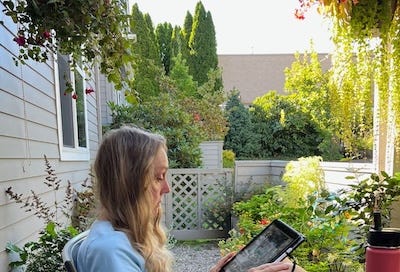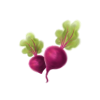21 Food Changes That Have Taken Place This Year
An eye-opening look at what may change eating forever
I recently mentioned to someone that I had spent several hours over the weekend reading Ultra Processed People by Chris Van Tulleken. I’m a little late in reading it as it was published in 2023, but after receiving several recommendations for it in the last few weeks, I knew it was time.
I learned a lot from it.
And I was happy to share some of this knowledge in my recent conversation. “How do you know all this stuff?” she finally asked. I told her I read stuff like this for fun.
It’s how I stay informed on what’s happening with Big Food, Big Ag, and Big Pharma.
And I will say that the “Bigs” have been up to a lot this year. (I suppose that could be said every year …)
A few weeks ago, I started having “they did what!?” moments. So I thought it would be “fun” to track all the things that made me sit up and take notice.
I’m sharing them now with you … because this could forever change your view on our current food system.
As I moved into vegetarian, and then vegan, and now plant-based eating, I was always amazed by the world around me. I wanted to learn all I could about food. I watched documentaries and read books as fast as I could.
And a lot happens on a daily basis. I will tell you that the more you pay attention to your world, the more you discover. Eyes-wide open has been a surprise throughout this journey, because seeing something only makes you more aware of wanting to know more.
And there’s a lot to learn.
Let’s dive in.
USDA suspends avocado inspections in Mexico over security issues. Mexico makes up 89 percent of US avocado imports.
Chocolate prices are on the rise - BIG TIME.
Banza Chickpea Pasta was found to have the highest level of glyphosate - 2,963 ppb - the highest amount ever measured in human food.
Chick-fil-A - a company that once implemented its No Antibiotics Ever policy in response to consumer’s growing interest in food sourcing and the use of antibiotics in the meat industry is now reversing its position. It’s concerned about its ability to acquire enough antibiotic-free chicken to maintain production, and about the growing cost of sourcing higher-quality meat.
Apeel claims their post-harvest sprays extend the shelf-life of produce, but what’s really in the sprays they are putting on both conventional and organic produce, including avocados, citrus fruits, apples, and cucumbers? Grocery stores are taking sides in whether they’ll accept this produce or not.
It’s not water being sprayed on your produce at the store - some stores are adding ProduceMaxx, which lists hypochlorous acid and “other” ingredients.
GMO 2.0 is here - Can you even define what GMO means anymore? Greens made by adding genetic material from a completely different species aren't considered genetically modified, though it could not be produced through conventional selective breeding. They’re about to be sold to the US, UK, and EU.
A new study shows that a higher intake of ultra-processed foods is associated with higher all-cause mortality. That’s huge considering ultra-processed food consumption accounts for 57 percent of daily energy intake among adults and 67 percent among youths in the US.
There’s movement in the Corn War. Bayer dropped their lawsuits against the Mexican government over its intention to ban genetically modified corn. Mexico wants to keep glyphosate out of their country to protect the health of the population and the genetic diversity of maize. Bayer may have stepped aside, but the US is still fighting for the right to export GMO corn into Mexico.
Avocados have a problem. But if you’re concerned about avocado production, take a look at Driscoll’s. It’s no wonder strawberries are always at the top of EWG’s Dirty Dozen list.
Want to know what impacts how you eat? If you think your local restaurant is getting louder, you’re not alone. There’s proof they are.
I got angry when I first read about this. Japan has prioritized nutrition in its children’s lunch program. They teach cooking skills, gardening skills, dining etiquette - all that and more as a part of their education. Instead of the free-for-all approach we take with ours here in the US, feeding kids with ultra-processed foods where even ketchup is considered a vegetable. Something needs to change.
Think organics are truly organic? Think again. Oversight is minimal at best. Here’s just one example. I still believe organic food is your best shot for better food, especially in the US, but understand it has a long way to go. There are ways to get involved in watch programs to ensure organics stay organic.
I believe this says it all: “Ethanol should never have gotten passed off as a more environmentally beneficial fuel. By subsidizing ethanol, you may get more ethanol, but it’s at the cost of better farming practices.” That’s because to monocrop corn, it degrades the soil, plant health, and interferes with biodiversity.
The world is revolving around gene editing everything at the moment, but is it the right path? Has enough research been done? We’re about to go in even deeper with gene-editing pesticides. Humans and animals will be exposed to these gene-altering pesticides through all of our food, without any regulatory oversight.
One of the hardest things for any “aware” foodie is finding things you once thought to be safe no longer are. I recently read that washing an apple before eating it isn’t enough. Pesticide residue penetrates the peel layer, meaning to avoid consuming pesticides while eating an apple, you must peel it first. I love apples, so this has given me lots to think about. Plus, possibly even more disturbing is that more than 72 percent of over 10,000 food samples they tested did carry detectable pesticide residues.
PFAS in your straws? A study said these “forever chemicals” were identified in 80 percent of bamboo straws tested, 75 percent of plastic straws, and 40 percent of glass straws. Nothing in the steel straws. So if you use straws to make drinking easier, it’s time to switch to steel straws.
Genetically modified wheat - why not? That’s what Big Ag said when it approved HB4 wheat technology to release its first genetically modified wheat into the US market. They’ll be growing it in the US despite major international buyers of US wheat approving the innovation. Global demand might be increasing, but if places like Mexico, the Philippines, and Japan decide not to accept it, the US will have a glut in the market. And if they do accept it … Just another way to get chemicals into our food supply.
Synthetic fat. Is it a good idea? We seem to be obsessed with the idea of developing food alternatives in the lab, but that doesn’t make it better to eat.
Environmental Protection Agency (EPA) announced it was raising the allowable levels of the highly toxic weed killer atrazine in the nation’s waterways from the 2016 level of 3.4 to 9.7 micrograms per liter (µg/L), which scientists and environmental advocates say is a serious threat to aquatic plants, fish, invertebrates, and amphibians, as well as to people who recreate in waterways or eat food from them.
Need a little good news? A 24-year-old ongoing study finds that people who got their dietary fat from plants rather than animals had a significantly lower odds of dying. The study confirmed it wasn’t just meat, it found the same results from high dairy and egg consumption too.
What can you learn?
I give this information to you for several reasons.
👩🏫 First, I believe it’s important to follow resources that teach you what’s really happening in the world. It allows you to be a better human.
🌱 Second, a lot of this was overwhelming when I first moved into plant-based eating. But knowing what I do now, I feel I make better choices with my dollars, which ultimately means I have better food on my plate. Education starts somewhere.
📖 Third, plant-based lifestyles are built around awareness. Because you’ll never get “the facts” from today’s mainstream media sources. They have an agenda, and you’ll only hear their side. You have to look at it through many different lenses to get to the real story.
🛣️ Fourth, the narrative isn’t always right. If the Big Health, Big Pharma approach worked, we’d be the healthiest nation on earth. We’re not. And that means we have to take on more work to find the right path for ourselves.
I hope this helps. I hope this gives you new things to consider, new resources to explore, and a new way of thinking about your lifestyle.
p.s. Did you like this message? It would mean a lot to me if you’d press the ❤️ below if you liked it, left a comment 💬, or shared it with a friend. I’m trying to grow this publication, and I depend on people like you to do so!
And if you’re new here, Welcome! 💐 I’d love to start sharing my message with you if you’re interested in all things plant-powered, proaging, or finding kitchen joy. Subscribe … and then explore my entire archive! Glad to share with you! 🙋🏼♀️


























